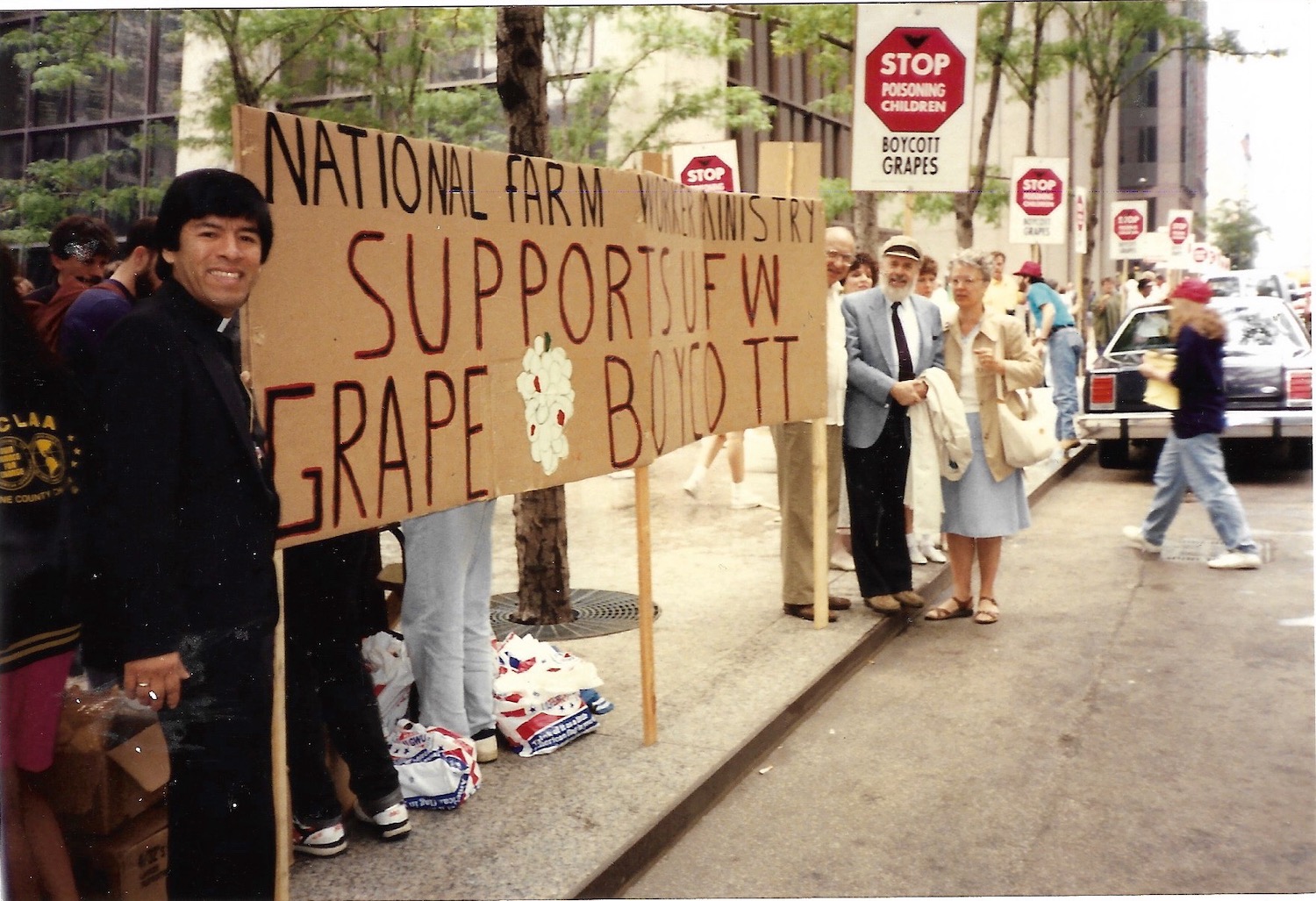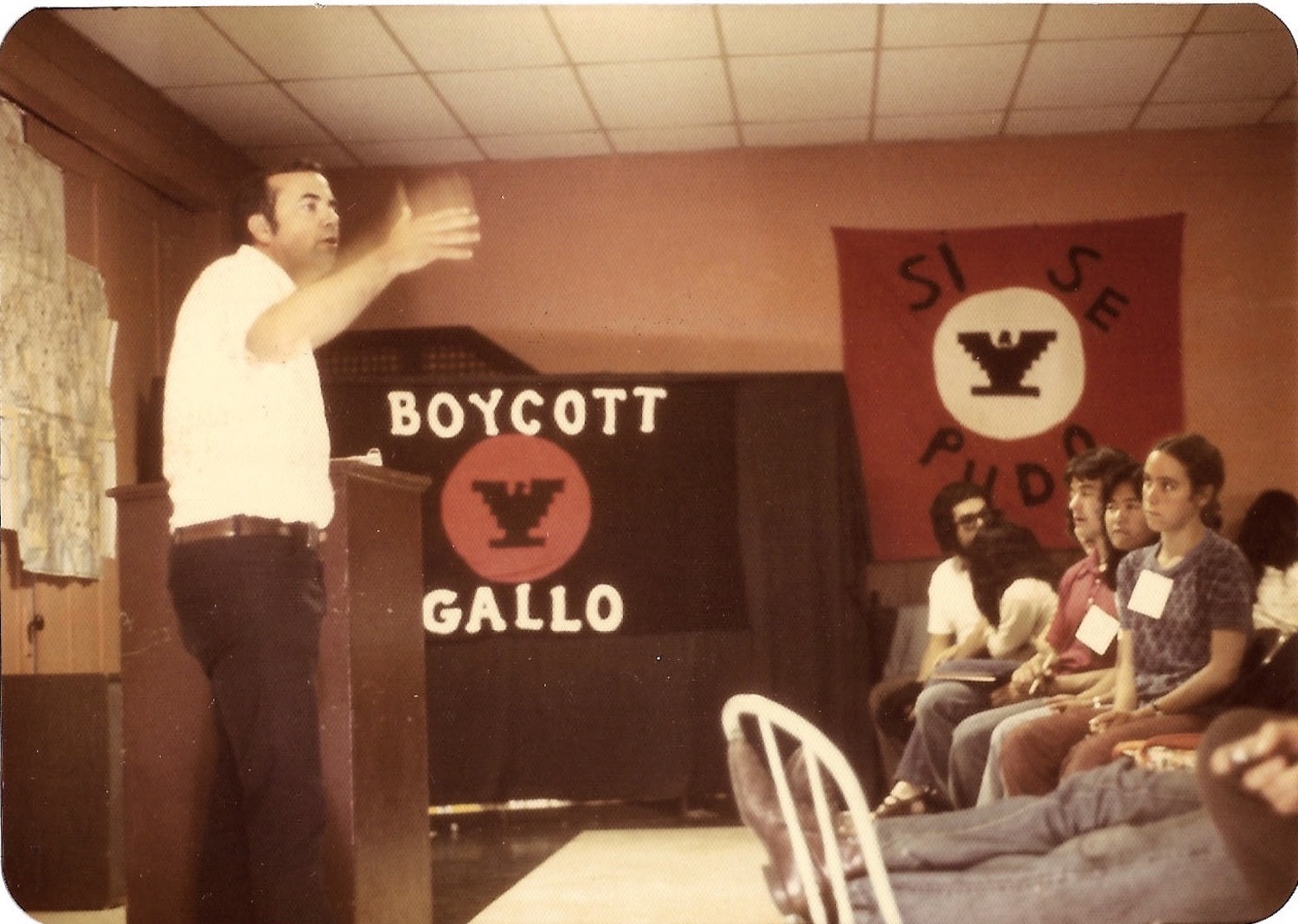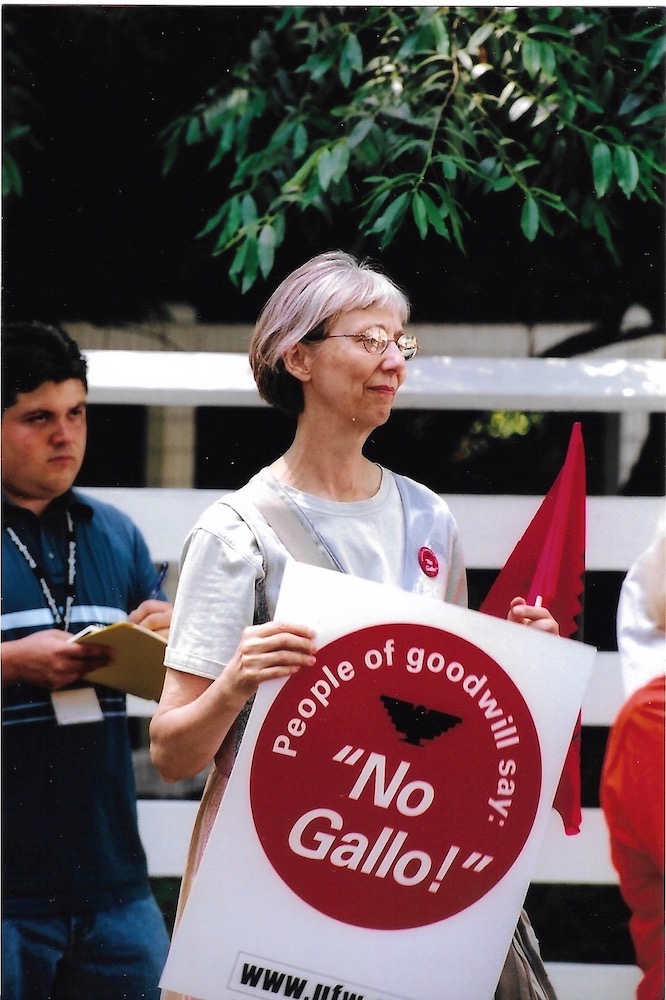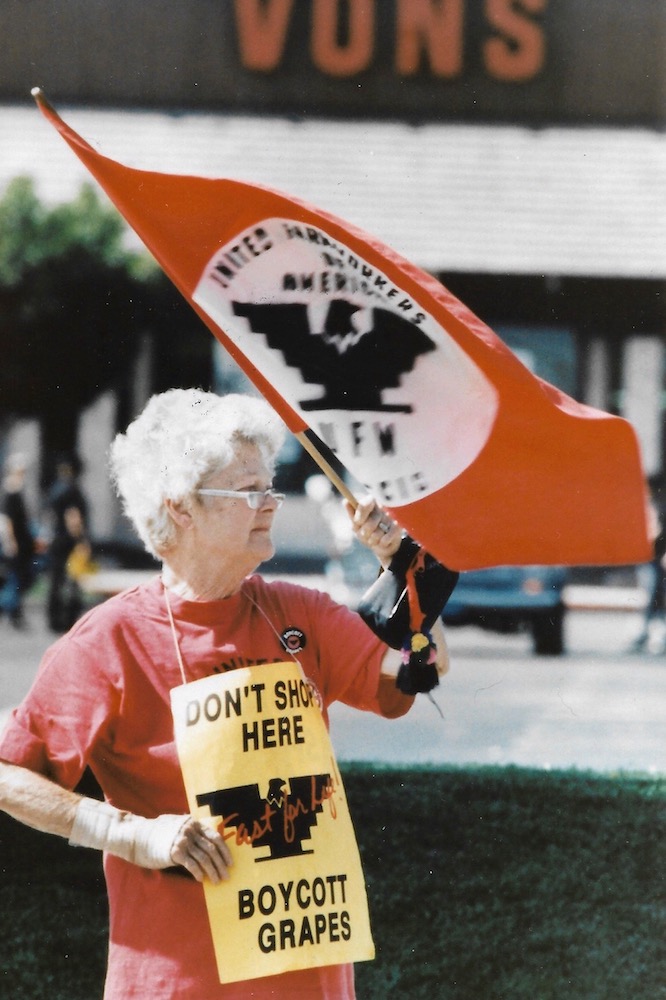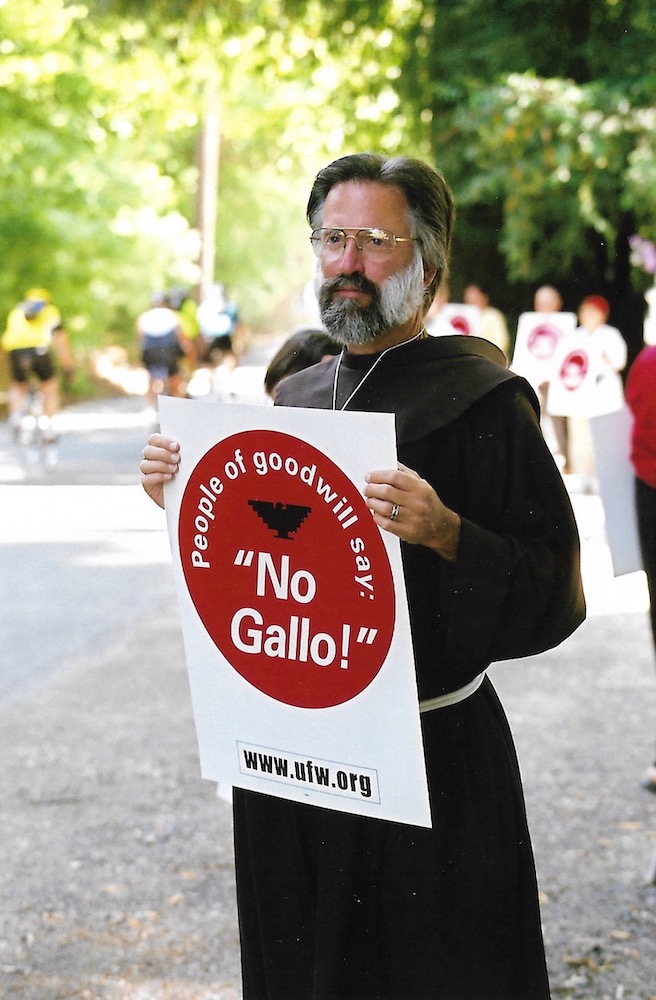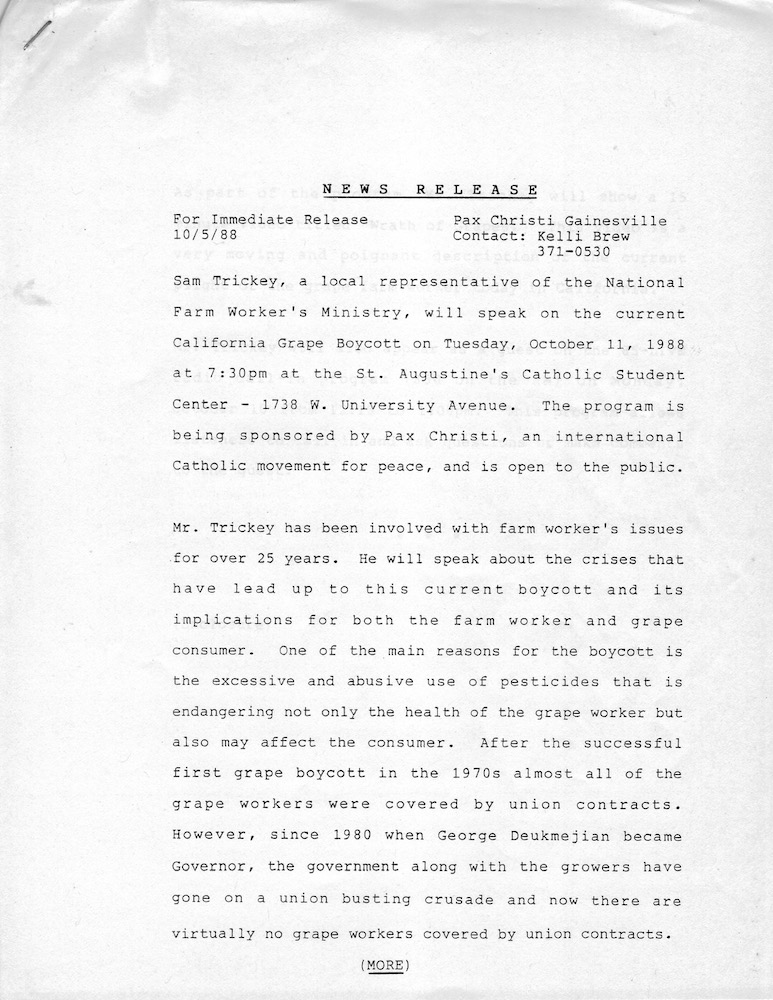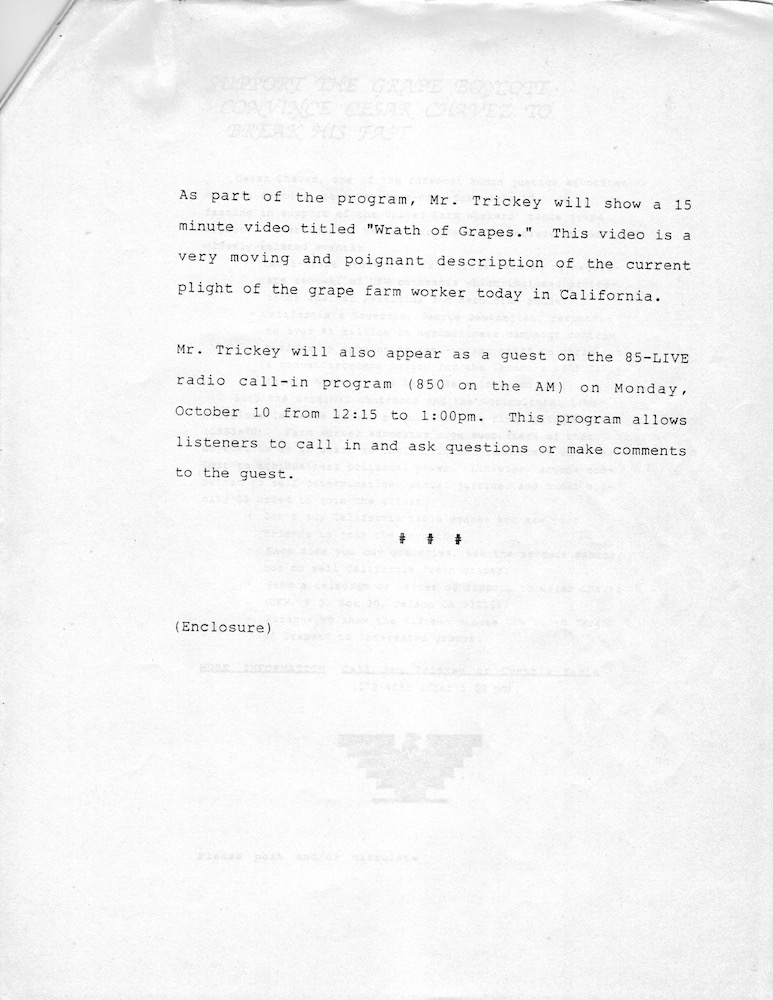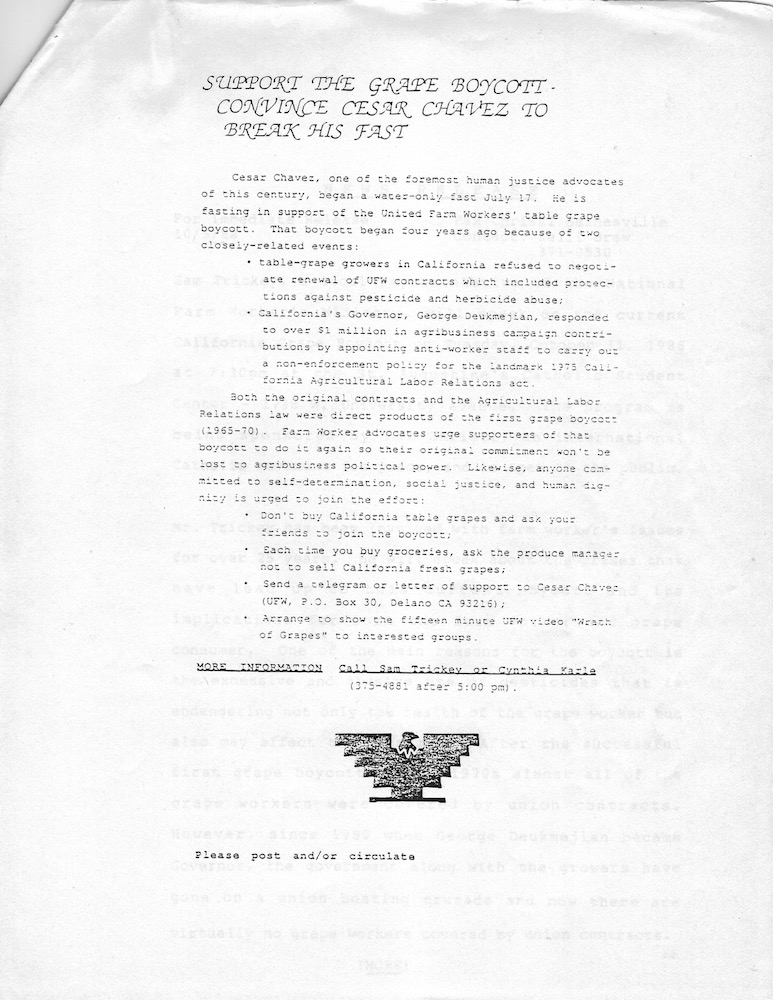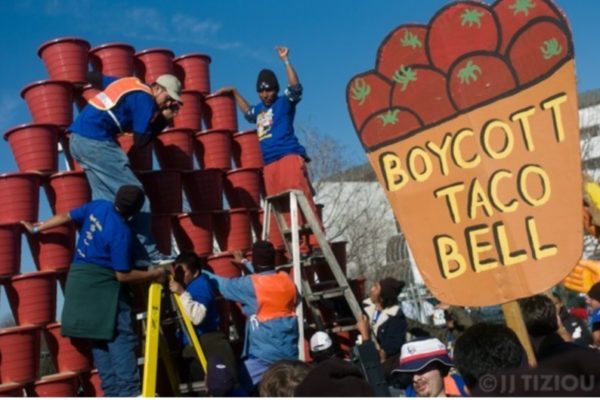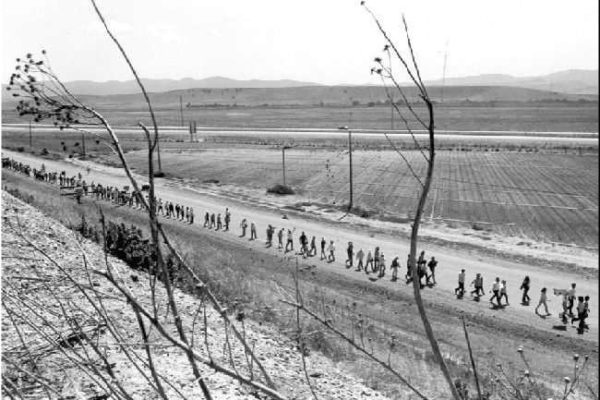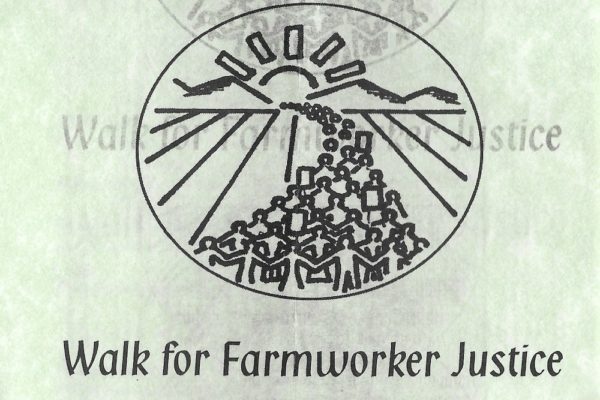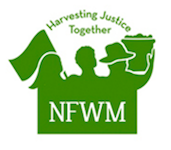“If people who grew up in the 70s learned anything about farm workers, it’s from the table grape boycotts,” said Julie Taylor, Executive Director of the NFWM. In the summer of 1970, most table grape growers in California had signed 3-year contracts with the United Farm Workers but by 1973 when the contracts expired, many of the growers arranged private “sweetheart” deals with the Teamsters, sparking thousands of farm workers to go on strike. The strikes led to 3,500 arrests of non-violent protests and violence that resulted in several beatings and two deaths.
Olgha Sierra Sandman recalls a trip to the Coachella Valley in the 1970s during the strike when the Ministry answered the call from the UFW to support the striking workers. “I went together with all the people to Coachella and I remember standing on the grape fields, outside a line of people from NFWM and we stood there and the Teamsters would come by in between us and the fields, insulting and taunting us, and behind us would be the farm worker organizers saying ‘don’t answer, just stand here and hold your signs.’ It was powerful. That was one of many, many experiences that we all went through. NFWM has continued that presence for farm workers over the years.”
Due in part to the violence, the UFW called off the strike and instead, launched a second national boycott of table grapes, as well as lettuce and Gallo wines. “The striking farm workers ended up going across the country all the way to Chicago and New York. They were sleeping on people’s couches so they could leaflet in the city. They would use the mimeograph machines at the churches to run off flyers to hand out at the grocery stores. And a lot of times, the hosts were the faith community. They [the farm workers] showed up at priests houses and pastors houses and said ‘someone sent us here, can we stay with you?’ And folks would accommodate them,” shared Julie Taylor, Executive Director of NFWM.
Richard Cook, an early staff member of the NFWM, remembers being assigned to work in St. Louis organizing people to stand outside liquor stores and grocery stores to urge consumers not to buy wine or table grapes. Reported by the LA Times(1): “One survey indicated that as many as 17 million Americans weren’t buying grapes, union officials said.” The second boycott ended in 1977 with the passage of legislation in California strengthening labor laws that were considered the strongest in the country at the time.
“The intent of the [third] grape boycott was to go after the toxic pesticides,” recalled Virginia Nesmith, former Director of NFWM. “The Ministry was involved because Pat Drydyk and Fred Eyster [former NFWM staff] brought people to witness to the fields and talk with farm workers about their experiences and the dangers of pesticides. They identified cancer clusters in the valley. When UFW ended that boycott, they sent a letter to the Ministry thanking us for our support.” The third boycott lasted just over 16 years, ending in 2001.
(1) Rainey, James. (2000 November). Farm Workers Union Ends 16-Year Boycott of Grapes. Los Angeles Times.

